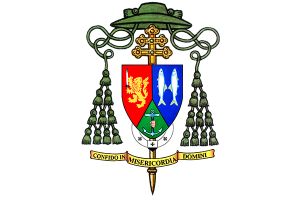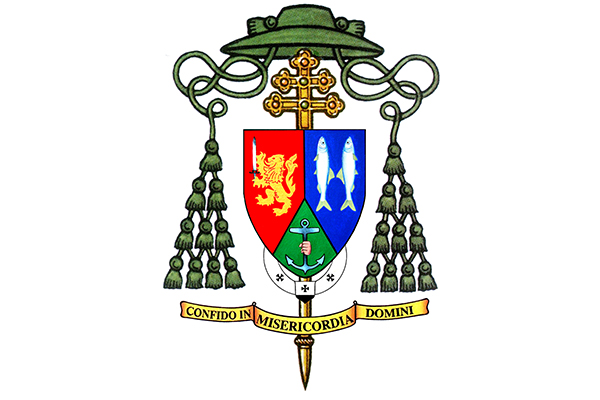

Last week the government of Canada introduced Bill C-14 which sets out proposed legislation to make available “assisted dying” to those who wish to use medical means to end their lives. It must be made clear that this is contrary to our Catholic understanding and teachings regarding life and death.
The Canadian Conference of Catholic Bishops (CCCB) has released a statement and many individual bishops, including Archbishop Mancini, have issued their own statements. In part Archbishop Mancini’s reads:
“As we try to make sense of where all this is going, it is important to stay alert; to try to better comprehend what is being proposed and to not let ourselves be duped into a way of thinking that is false. Even if the present legislation does not go as far as it might have, it remains contrary to our fundamental values of respect for life. Understanding death and dying along with what the proper responsibility of the health care professionals who have taken an oath to protect life, not to terminate it, is a great challenge. “
Catholics throughout Canada are being encouraged to become informed and have their say regarding this gravely serious matter. To read the full text of Archbishop Mancini’s statement, see below.
Statements & Resources:
- A statement from His Eminence Thomas Cardinal Collins; for that full text click here
- The latest statement from the CCCB; for the full text click here
- Coalition for HealthCare and Conscience (www.canadiansforconscience.ca)
- Every Life Matters Easter Series by Archbishop Smith (caedm.ca/ELM-easterseries)
 ….from the office of the Archbishop
….from the office of the Archbishop
On April 14th, Bill C-14 was introduced which sets out the terms & definitions of the new proposed legislation intended to make available “assisted dying” to those who would choose such a way to end their lives. This legislation is clearly not in keeping with our Catholic understanding of life and death.
As we try to make sense of where all this is going, it is important to stay alert; to try to better comprehend what is being proposed and to not let ourselves be duped into a way of thinking which is false. Even if the present legislation does not go as far as it might have, it remains contrary to our fundamental values of respect for life. Understanding death and dying along with what is the proper responsibility of the health care professionals who have taken an oath to protect life, not to terminate it, is a great challenge.
The proposed legislation does not clearly address some of the issues of major concern such as the protection of conscience for those medical practitioners, and other healthcare providers, who object to assisted suicide. This matter seems to have been relegated to provincial jurisdictions without any clear sense of how the matter will be addressed, or if it will provide protection of conscience. As Catholics of this Archdiocese in Nova Scotia, therefore, we must continue our efforts to protect life, to protect conscience and to promote our commitment to the ministry of care and compassion through home and palliative care initiatives.
To help us be better informed, I invite you to read the first response of the Canadian Bishops to C-14; to reflect upon Cardinal Collins’s statement and to consider what you can do to make your voice heard, as our legislators debate and consider the legislation which is before them.
All of us need the grace of insight, courage and the help of the Holy Spirit as we face this major moral dilemma. Thank you for taking this matter seriously.
†Anthony Mancini
Archbishop of Halifax-Yarmouth
April 15, 2016
 ….du bureau de
….du bureau de
l’archevêque
Le 14 avril 2016, le projet de loi C-14 fut introduit au Parlement canadien. Ce projet expose les termes et définitions de la nouvelle législation proposée qui a pour but de rendre accessible le ‘suicide assisté’ à ceux qui voudraient choisir ce moyen pour terminer leur vie. Cette législation est clairement non conforme avec la définition et compréhension catholique de la vie et de la mort.
Alors que nous essayons de comprendre où tout cela va nous amener, il est important de demeurer vigilants, d’essayer de mieux comprendre ce qui est proposé et de ne pas nous laisser duper sur une manière de penser qui est fausse. Même si la présente législation ne va pas aussi loin qu’elle aurait pu aller, elle demeure contraire à nos valeurs fondamentales du respect de la vie. Comprendre la mort et le processus de mourir – avec tout ce qui est rattaché aux responsabilités propres des professionnels des soins de santé qui ont fait le serment de protéger la vie, et non de la terminer – est un grand défi.
La législation proposée n’aborde pas clairement quelques-unes des difficultés de souci majeur comme la protection de la conscience pour les praticiens médicaux et les autres fournisseurs de soins de santé qui s’opposent au suicide assisté. Ces éléments essentiels semblent avoir été relégués aux juridictions provinciales, sans expliciter clairement comment ces points de détails devront être réglés, ou s’ils procureront la protection de la conscience. Comme catholiques de cet archidiocèse, ici en Nouvelle-Écosse, par conséquent, nous devons continuer nos efforts pour protéger la vie, pour protéger la conscience et pour promouvoir notre engagement au ministère du soin et de la compassion envers les personnes vulnérables et en fin de leur vies, en proclamant fort des initiatives de soins palliatifs à la maison, ainsi qu’à des centres de santé.
Pour nous aider à être mieux informés, je vous invite à lire la première réponse des évêques canadiens au projet de loi C-14. Je vous encourage également à réfléchir sur la déclaration du Cardinal Collins et de considérer ce que vous pouvez projeter pour faire en sorte que votre voix soit entendue, en ce moment même où nos législateurs regardent et étudient la législation qui est devant eux.
Chacun de nous avons besoin de la grâce de l’Esprit pour maintenir un regard chrétien et nous armer de courage apostolique devant ce dilemme moral majeur. Un merci à vous tous qui prenez cet exercice au sérieux.
†Anthony Mancini
Archevêque d’Halifax-Yarmouth
Le 15 avril 2016
